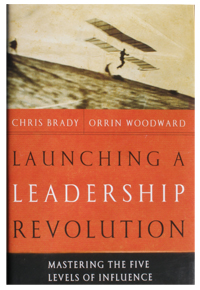
Features
Leadership
Cornerstone: June 2010
Good fire service leaders inspire and share their knowledge with others. And they never lose sight of their two main responsibilities – to their people and their organizations.
June 4, 2010
By Lyle Quan
Good fire service leaders inspire and share their knowledge with others. And they never lose sight of their two main responsibilities – to their people and their organizations. The first responsibility, of course, is to successfully lead their teams so that all members eagerly and willingly become contributing members. The second responsibility of leaders, and possibly the more important one, is to pass on knowledge and the practical experiences they have gained while building their careers in the fire service.

|
So, is a leader a mentor or is a mentor a leader? The short answer is not all the time. Not all leaders of an organization are sought out by their peers and subordinates to help guide them in their career development; so, the larger question is, why not? Let’s look at answers to that question and two books that will help to guide you even further in your career development.
Leaders may be technically great at executing their duties and responsibilities to the organization and its staff. But if they don’t pass on their skills and information, who will carry the torch? So, the question becomes, are we truly leading or are we just managing the organization?
Leadership and management are two different things. Quite often, where good leadership is needed, poor management is there as an impostor. Leadership is about doing the right things; management is about doing those things the right way. Or, as a past fire chief of mine used to say, “Leaders inspire; managers perspire.” Based on this concept of inspiring your people and becoming a mentor, the first book I am recommending is Launching a Leadership Revolution by Chris Brady and Orrin Woodward (2005). Brady and Woodward discuss what a leader is and what leaders can bring to an organization. Most of the lessons learned in this book are based on the authors’ five levels of leadership, which are:
- Learning – to learn, you must first become the student;
- Performing – you learn how to apply some of the lessons taught at the first level;
- Leading – you demonstrate to others how to perform like you;
- Developing leaders – you become the mentor;
- Developing leaders who develop leaders – at this final level, you have a following of other leaders who want to take themselves to the next level by developing others.
All these levels must be reached in the order noted, much like building a pyramid. It’s only when fire officers understand how to learn and perform as leaders that they can begin to lead. The most exciting part of the journey that the authors describe is at levels four and five, when leaders get to share their experiences and knowledge with others. Levels four and five are also when leaders can truly see and appreciate the fruits of their labour because this is where they get to create new leaders within the fire service.
For me, there is nothing more exciting and flattering than to be asked to mentor (and guide) someone. This is where the second book I’m recommending, Leader Mentoring by Michael Shenkman (2008), builds on the lessons of the first book. Shenkman explains that mentoring is different from teaching, instructing and coaching because it emphasizes the talents and skills that we use daily and helps to bring out the qualities and values of life we need to sustain any creative endeavours.

|
Shenkman addresses such topics as how to mentor, how to identify a candidate for mentoring and even what it’s like to be mentored. One essential talent that the author identifies as a fundamental ingredient for a leader is people skills. Unfortunately for some, people skills are innate. In other words, these are skills that you either have or you don’t and can’t be taught.
I have had the pleasure of speaking at several conferences on leading and developing our people and I can tell you that there is no special recipe to accomplishing these things – it’s all about being honest enough (with yourself) to admit that you cannot know everything and open enough to learn from others. A leader is a lifelong learner who is always thirsty for knowledge and constantly trying to find ways to do things better for the organization and its people.
Both books are a great read on their own, but together they complement each other. They are available through Amazon
and Chapters.
Launching a Leadership Revolution by Chris Brady and Orrin Woodward. (2005), published by Business Plus Leader Mentoring by Michael Shenkman. (2008), published by Career Press.
Lyle Quan is a deputy fire chief with the Guelph Fire Department in Ontario. He has a business degree in emergency services and a degree in adult education. Lyle is an associate instructor for the Ontario Fire College, Lakeland College and Dalhousie University. E-mail: thequans@sympatico.ca
Print this page